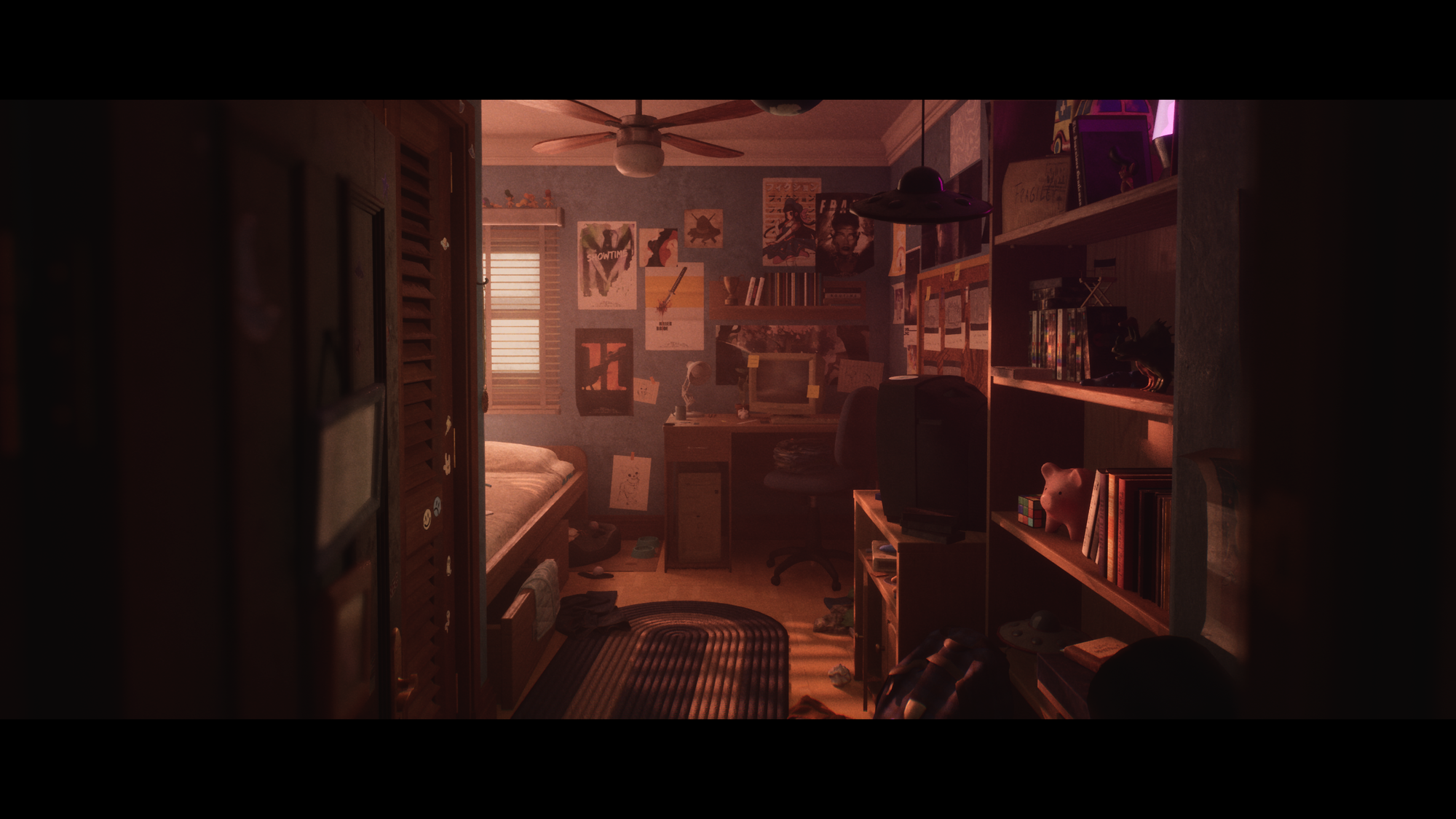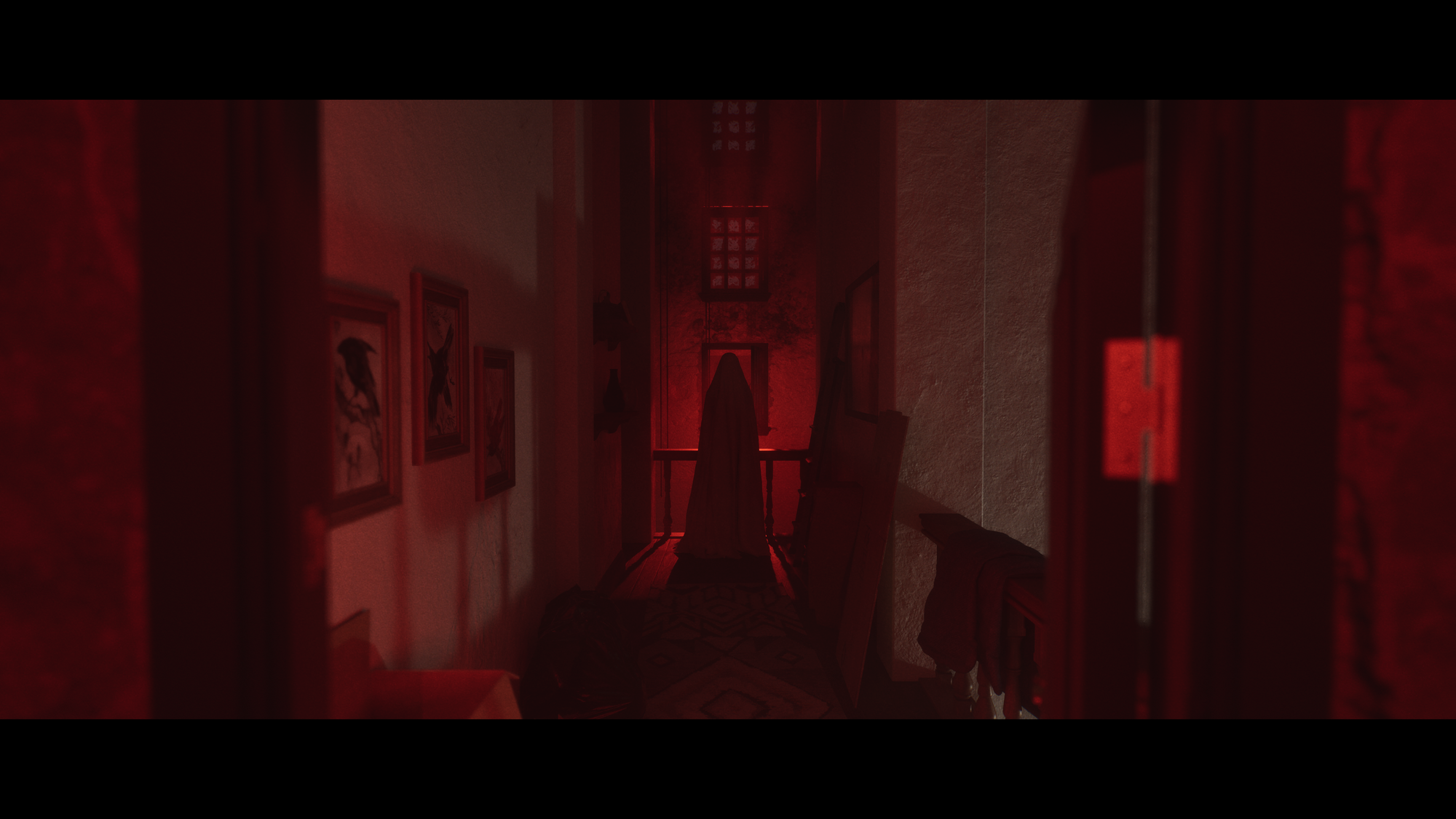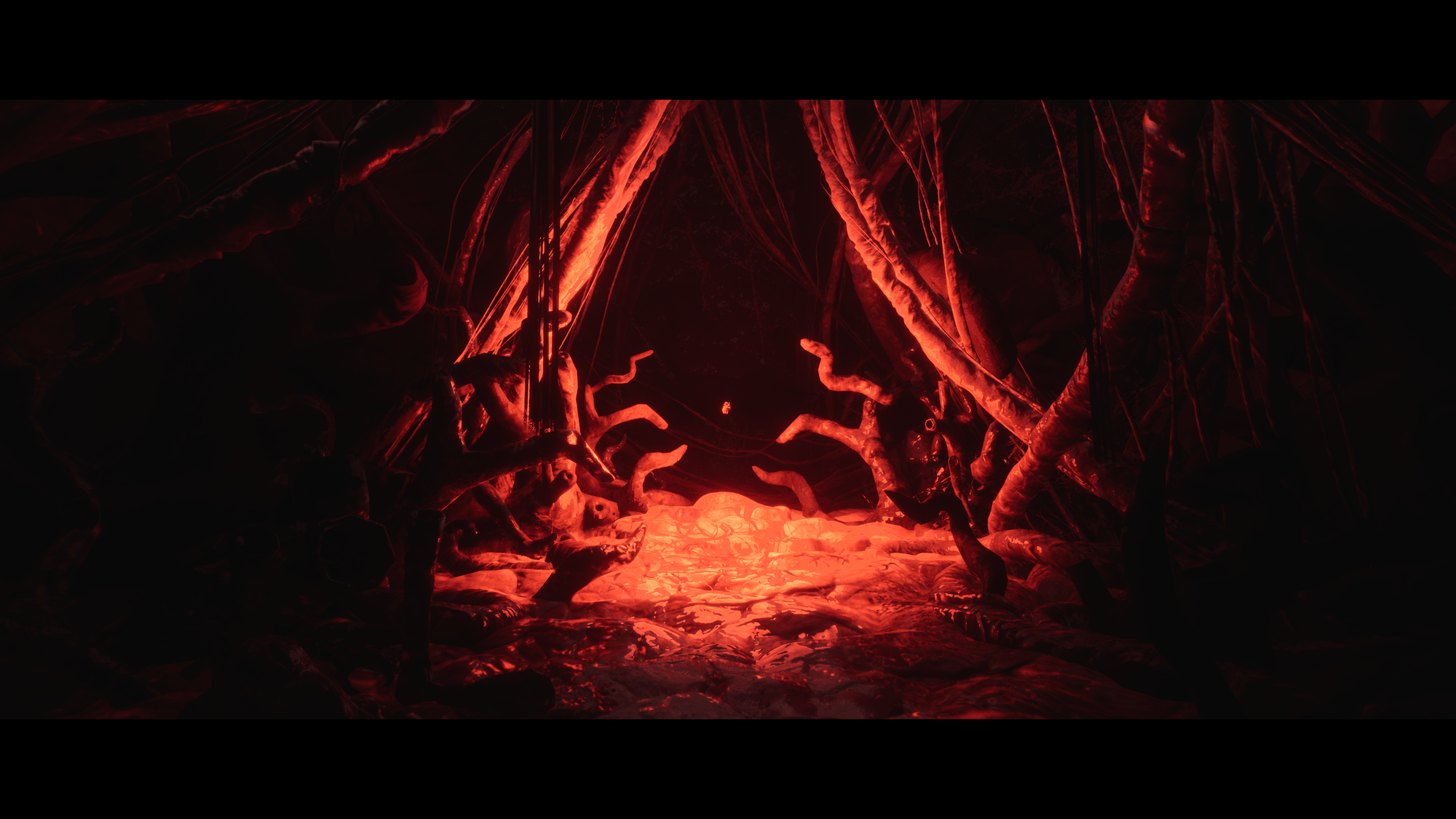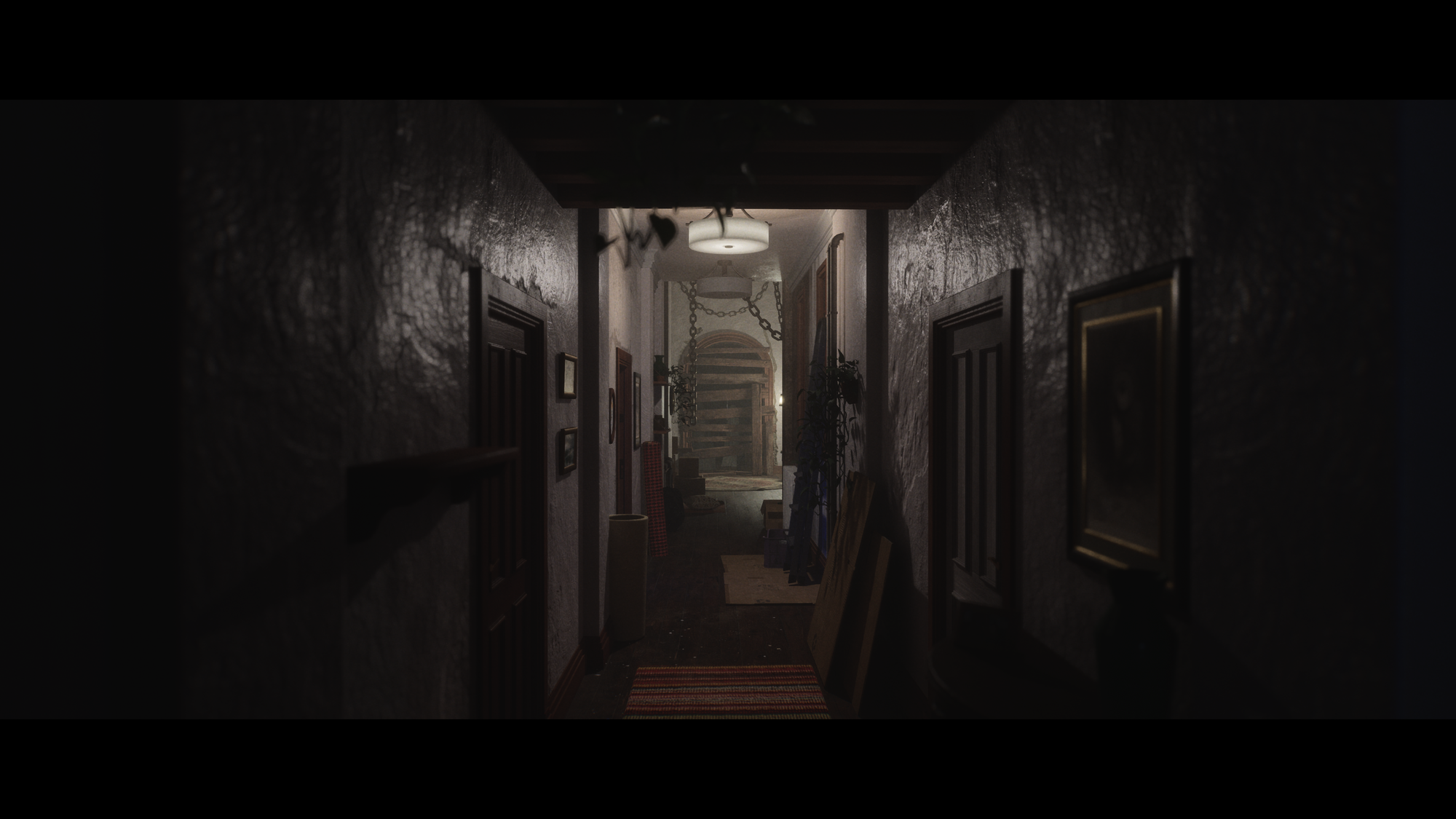After a standalone demo that got everyone’s skin crawling back in 2023, players can finally experience Luto, the debut effort from Broken Bird Games. Suffice it to say that expectations were high for this one and, after getting my hands on the game, I can confirm that this first-person psychological horror will not disappoint - with perhaps the odd caveat or two. Although I must admit that, for the majority of my time with Luto, there was a distinct creeping feeling that it was in fact the game that had its hands firmly grasped on me.
Luto sees the player take control of Samuel, a man who is unable to leave his own house due to a spatial and chronological loop trapping him in a seemingly endless cycle. Pretty standard, right? However, what begins as a relatively mundane repeating loop begins to get weird very quickly, spiraling quite drastically and plunging Samuel into a maze made up of his own forgotten memories, hidden fears, and buried trauma.
SPOILER WARNING: Due to the narrative being a core component of Luto as an experience, and despite every attempt on my part to avoid spoiling anything plot or gameplay-wise, proceed with caution as this is absolutely a game best experienced first-hand.

First and foremost, I have to commend Luto for the genuinely terrifying feeling it evokes. Every corner turned. Every door creaked open. Every item slowly grasped. There’s a heaviness about the house. An oppressive force that drapes itself over the player and refuses to shift. Every step. Every puzzle. Every success. They all lead back to the same place. It is as if the dimensions of time and space have shattered as places from Samuel’s past seep together and stairs inexplicably lead back to the same floor you were just exploring.
And that’s before the ‘ghosts’ start appearing. I say ‘ghosts’ as they are, for all intents and purposes, humanoids covered head-to-toe in bedsheets. It sounds laughable, but I can assure you it is absolutely no laughing matter when one of them is sprinting toward you down a dark corridor. Whilst there are jumpscare moments, they are fewer and far between, with the game instead opting for its preferred subtler approach: empty spaces where figures used to stand, obscured shadows at the ends of hallways and glimpses of peeking heads as corners are turned. There’s an inescapable dread to Luto, like an unknowable horror is constantly lurking just out of sight. In a Venn diagram of Lovecraftian cosmic horror, David Lowry’s 2017 film A Ghost Story and Doki Doki Literature Club!, Luto sits comfortably at the intersection, whilst paradoxically also feeling completely distinct from any of them.
By Broken Bird Games’ own words, Luto is ostensibly ‘a game about death’. It’s an accurate description, but one that does not quite encompass its full scope. It’s not just death, but everything else surrounding it that is being interrogated here. The game does a stellar job of acting as a metaphor for some truly tragic and complex themes, such as grief, loss, loneliness, mental illness and guilt. Yes, it is a creepy game. Yes, it throws a jumpscare your way on occasion. And yes, it wrestles away the player’s autonomy. But it is also at its core a deeply meditative and atmospheric experience, and I believe that this is where Luto’s strengths lie.

Gameplay-wise, the game borrows heavily from the ‘walking simulator’ toolbox of protagonist abilities. Samuel can walk, run (although that is a generous description) and interact with certain doors and items. And that’s essentially your lot. Granted, you do get access to some items that are contextually helpful, with probably the most useful being the flashlight as the game loves to drop you into pitch darkness frequently.
I also want to take a moment to praise the game for how impressive its visuals are. The photorealistic style lends itself well to the uncomfortable, chilling aura it evokes, and there is something abjectly terrifying in witnessing a bedsheet ‘ghost’ move and watching the disturbed draped cloth unnaturally wrap around what is underneath as it settles.
With that, into the loop you go, moving through Samuel’s house as it begins to transform into a labyrinthine amalgamation of living quarters, desert, cave and chapel. The game expects players to have keen senses, as every loop sees often devious little changes that Samuel must identify in order to break into the next layer. There are also collectibles of sorts you can find, including notes, Spanish-English cue cards and pages from Samuel’s own sketchbook. These are not the kind of collectibles you should be sleeping on, as some are actually integral to solving the frequent puzzles you are faced with.

Which gives us a smooth segue into the puzzles that the game has to offer. Being one of the caveats I mentioned at the top of this review, it is here where I feel that Luto stumbles somewhat. There is a tendency for some puzzle sections to become immensely convoluted, requiring the player to use absolutely everything available to them as clues.
For the record, this is a completely valid design choice, and furthermore it is one that I imagine many players will enjoy.. With this choice, however, comes an unavoidable barrier to accessibility, especially in the earlier parts of the game when you’re still getting to grips with what it expects from you. There is absolutely a catharsis to finally solving a tricky puzzle, and there is plenty to be had here no doubt. But to actually feel this satisfaction, you have to actually be able to complete the challenge, and some of the puzzles presented to the player are unnecessarily dense and can become frustrating.

As has been hinted at already, Luto has a real meta nature to it which you don’t have to progress far to experience in full. Firstly, an unseen narrator (absent from the 2023 demo) describes and comments on Samuel’s, and by proxy the player’s, actions and decisions. There are moments where the narrator is surprised or even annoyed at the actions of the player, and it really reminded me of The Stanley Parable. It is an odd choice on the developer’s part, at least initially, as it feels rather dissonant from the creepy, skin-crawling atmosphere Luto is going for. Admittedly, this choice becomes much more understandable as the narrative unfolds and did win me over by the end by becoming much more nuanced and complex, but that still doesn’t mitigate the initial incongruence if players don’t commit to seeing the experience through.
That’s not all, however, as metanarrative is clearly baked into the DNA of Luto. I would love to list the myriad of examples for you…but I can’t. That’s a direct train to Spoilerville right there and, besides, it’s honestly something I feel needs to be experienced with one’s own senses in order to make a call on. What I can say, however, is that this is where the game’s second and final stumble occurs.
Luto feels like a game of two halves: a skin-crawling yet atmospheric journey through one person’s trauma and an experimental, self-referential horror experience that breaks down and draws attention to the established and arguably tired conventions of the genre. Both compelling loglines, yes, but I cannot help but feel that the latter is squeezed into the game to the detriment of the former. It’s not as cut and dry as saying it unequivocally doesn’t work, it’s just that the friction between these two identities seeps just a little too much into the gameplay experience itself, as though Luto is locked in a violent struggle to decide what it wants to be, and not in a cool meta way either.
Luto
Good
Luto is a bone-chilling and deeply layered game that, when playing to its strengths, provides an enthralling, emotional and creepy experience that goes above and beyond its initial exploration of death. Despite some stumbles in the form of some frustrating puzzles and a strangely dissonant meta nature, it is undeniable that Broken Bird Games have made a stunning debut here, and are absolutely a studio worth watching.
Pros
- Explores deeply traumatic themes with truth, impact and an ethereal grace
- Exceptional creation of tension and atmosphere that makes your skin crawl
- Nice balance of creeping horror, subtle shocks and full-on jumpscare
- Impressive graphics and performance
- Bedsheet ‘ghosts’
Cons
- Some needlessly frustrating puzzles
- A strange incongruence in tone caused by its more meta aspects
This review is based on a retail PS5 copy provided by the publisher.





















